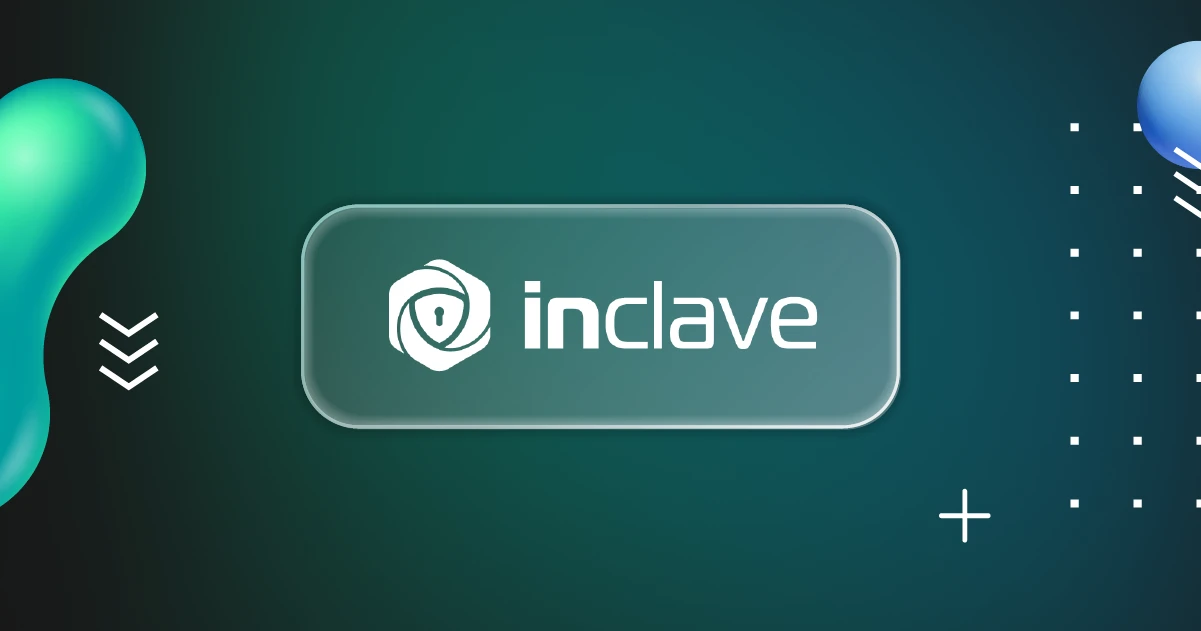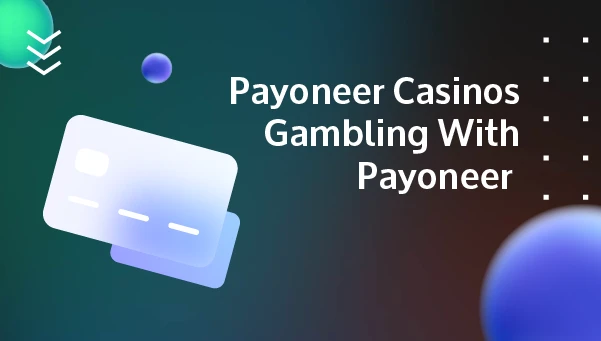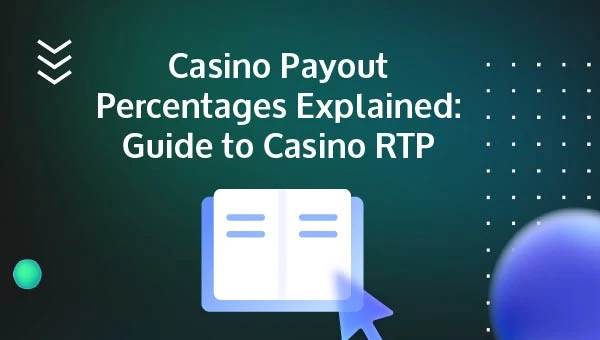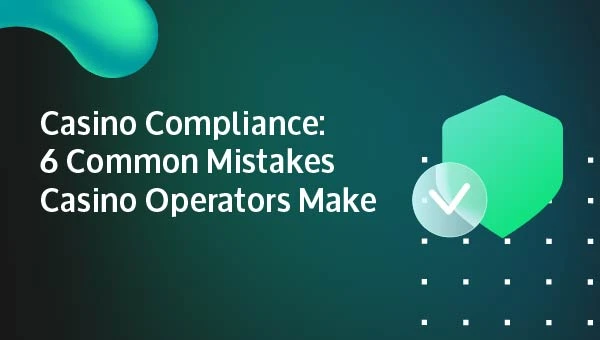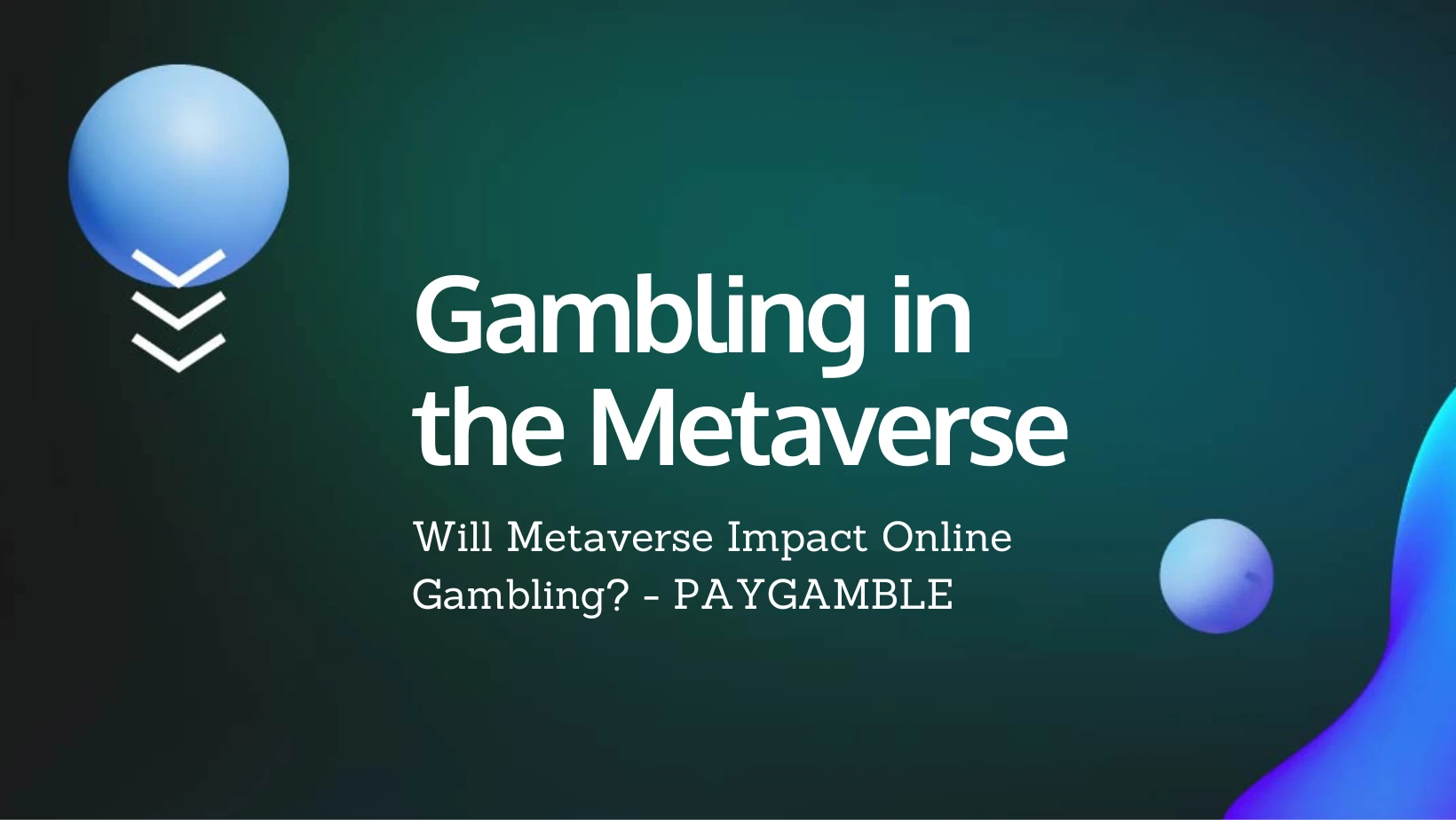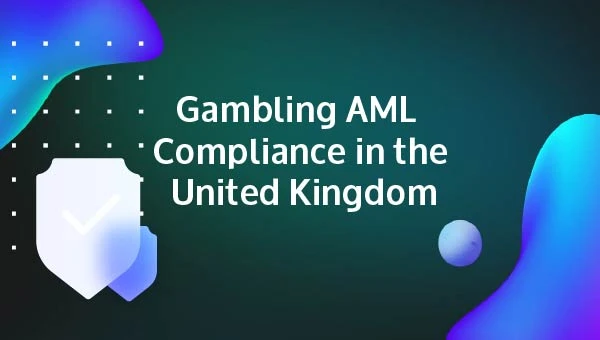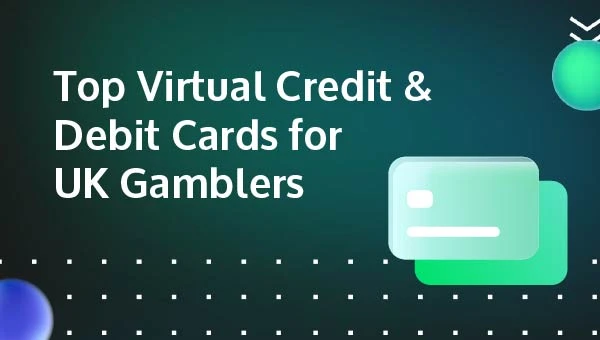Do Online Casinos Pay Out?
It’s every player’s worst nightmare, not getting their winnings. However, is this a case of the fear being worse than the reality? Do online casinos pay out winnings to their lucky players? This article will take you on tour through this all-important territory, covering winners’ stories, withdrawal payment methods, legitimate reasons an online casino may not pay out, and how to stop that from happening to you.
Proof of Payouts
What better way to start this article than with a resounding YES! to answer the question of whether online casinos pay out? In most cases, online casinos are true to their word and successfully transfer funds to their lucky winning players regularly.
Here’s a look at the current top 5 online casino jackpot wins to remind you that people do get paid by these sites:
- A player from Belgium won the world’s largest ever jackpot payout of €23.6 million playing Mega Moolah Absolootly Mad at the Napoleon Sports and Casino online gambling site in April 2021.
- One lucky player held the previous record of the highest jackpot win at €23.5 million, which was paid out by the Mega Moolah slot at the Grand Mondial online casino in September 2018.
- A 40-year-old player from Finland pocketed a whopping €21 million progressive jackpot payout from popular slot Mega Fortune at the Finnish online gambling site Paf Casino in 2013.
- 26-year-old Jonathan Heywood from the UK triggered a €19.9 million jackpot payout playing Mega Moolah at Betway Casino in 2015.
- A player from Norway won a massive €17.3 million playing Arabian Nights at Betsson Casino in 2011.
Of course, it isn’t just the life-changing sums that online casinos payout, with smaller amounts, also reaching the pockets of millions of thrilled players every day.
How Online Casinos Pay Out
In the same way, players usually have a wide range of casino payment methods to choose from when depositing at an online casino, there is a plentiful supply of options for getting your hands on your winnings.
Most of the time, withdrawing winnings involves sending them to the same payment method you used to deposit for security reasons. However, there are occasions where this is not possible, usually because the payment service provider cannot process transactions in the opposite direction.
All reputable online casinos are legally required to verify players’ identity and sometimes the source of funds before withdrawals can be processed. You’ll be asked to submit a few documents before you can get your winnings.
Once that’s done, withdrawals can be made using the following popular payment methods.
Debit and Credit Cards
One of the most popular methods for withdrawing winnings is debit and credit cards. World-trusted brands in the industry include AmEx, Revolut, Discover, and Wise, with many online casinos offering these as withdrawal methods.
Debit cards allow you to send your winnings directly to your bank account, whereas credit cards let you send your winnings to your credit account.
However, some credit cards can present problems when it comes to withdrawals. In this case, the online casino will look to confirm and verify an alternative method for sending you your payout.
It’s important to note that under some licensing authorities, most notably the UK Gambling Commission, credit cards are not permitted at online gambling sites.
eWallets
Almost as popular as debit and credit cards, the huge range of casino e-wallets and online payment service providers offer a safe and convenient way to get your hands on your winnings, with most online casinos offering at least a few of them.
Some of the most popular ewallets include PayPal, MiFinity, Neteller, and Skrill, but many more are available worldwide.
eWallets act as a middleman that allows you to make payments online without having to reveal your sensitive information, such as bank account and card numbers. Transactions are usually very fast, allowing you to get your winnings quickly.
Bank Transfers
Many players still prefer getting their winnings sent straight to their bank account, with many online casinos still offering this option.
Once your bank account details have been verified and confirmed, you can request that any existing casino balance be withdrawn. One drawback of this method is that the transaction will appear on your account as coming from the online casino, which many players would rather avoid. Some of the best bank transfer casino payment methods are Interac, Trustly, iDeal, and Zelle.
Mobile Payments
The explosion of mobile phones in recent times has led to the demand for more mobile-friendly forms of payment, which triggered the rise of services such as Google Pay, WeChat, GrabPay, and Apple Pay. These handy payment methods allow you to use your smartphone to pay for things offline and online without carrying your cards.
Another increasingly popular way of making payments with your mobile devices is using your mobile network contract through services such as Boku. However, not all of them will allow you to withdraw winnings.
Cryptocurrencies
Another upward trend in online gambling is the use of cryptocurrencies, with a growing number of online casinos accepting a wide range of coins, including Bitcoin, Ether, Litecoin, Dogecoin, Tether, and many others.
Not only can you deposit and play in your favorite cryptocurrency, you can also withdraw your winnings back to your crypto wallet of choice.
Reasons an Online Casino may not Pay Out
It’s natural to have an automatic, knee-jerk reaction when you realize that the online casino you decided to put your trust in has broken that delicate relationship by not paying you your winnings. It’s easy to conclude that the site is unscrupulous and shady and only wants your money with no intention of paying anything out.
However, it’s important to realize that there may be a legitimate reason for the online casino not paying out. There are, in fact, numerous reasons that a casino may decide to delay sending you your winnings or perhaps even not pay out at all. Many of these reasons are understandable when you consider the various regulations that operators must follow to protect themselves and their vast player base.
Here are a few reasons why a casino may not pay out.
Using False Information
When you first open an account at an online casino, you’ll be asked to enter a few details as part of the registration process. Such details commonly include your full name, email address, postal address, and phone number. It’s common for new players, or even more experienced players trying their luck, to enter bogus information into these registration form fields, often because they don’t want companies to know their personal information.
However, we strongly recommend against this approach when joining an online casino as it can result in non-payment of winnings and possibly account closure. At some point during your time at the site, you’ll be asked to provide proof of identity before any withdrawals can be approved. If it emerges you’ve used false information to sign up; your winnings will not be paid out due to Know Your Customer and Anti Money Laundering practices.
Bonuses
In most cases, payouts are delayed or refused due to ignorance of the site’s bonus policy. There is no excuse since the bonus terms are usually very easily accessible and should be read by every player before joining. But how can not know about the site’s bonus terms result in non-payment of winnings?
Bonuses are great for getting a bit extra to play with, but if you’re not careful, they could land you in hot water with the online casino offering them. Welcome bonuses, in particular, carry very carefully worded terms to ensure players don’t take advantage at a crucial point in the acquisition process. Such terms can include how much the bonus (and, in some cases, deposit amount) must be played through before withdrawals are permitted.
There is also often a cap on the number of winnings that can be withdrawn, especially when it comes to free spins offers.
T&Cs
The bonus terms are not the only legalese in which you can find your withdrawals getting caught. Almost all online casinos feature a link to a full set of terms and conditions in the site’s footer. Yes, they’re long, wordy, and boring to read. Still, the T&Cs contain vital information regarding your responsibilities as a player and the site’s responsibilities regarding how they deal with those who fail to abide by the rules. The act of joining and playing at an online casino is taken as your agreement to the T&Cs, so it’s in your best interest to read them.
The site’s T&Cs address all possible situations, many of which may not apply to you, but since some of them can be quite obscure, it’s worth checking them out. Such terms that may result in delayed or refused withdrawals include copying, leasing, selling, or reverse-engineering the casino software, letting others use your account, and not playing with your deposited funds.
Various other T&Cs have non-payment-related implications, many of which have been summarized in their sections below.
Duplicate Accounts
Having more than one account at an online casino is seen as a serious breach of the site’s T&Cs and can also result in the refusal to process withdrawals and even the closure of all related accounts. But why?
The presence of more than one account per person, family, address, email address, specific payment card, or shared computer area (e.g. a workplace) can indicate to the online casino the potential for unethical activity. Money laundering and other shady practices are the first things that come to mind in this respect. Still, it’s also not unheard of for players to open multiple accounts to claim bonuses numerous times, something the online casino wants to prevent.
Unusual Activity
Any unusual activity on the player’s part during their time at the online casino can be grounds for the site to refuse to pay out. But what is meant by the term ‘unusual activity?
Unusual activity could mean anything and online casinos go to great lengths to define what they see as unusual activity by examples. The most common form of unusual activity that could trigger an online casino to refuse the payout of your winnings is using any betting strategy. Now we all know that all betting strategies out there aren’t worth much more than just entertainment value.
On the off-chance there is some edge of being had in the way you bet; online casinos have included this in their terms to offset any potential risks. Any indication of such activity as card counting will result in the refusal of withdrawal requests and, most likely, account closure.
Other kinds of so-called unusual activity that result in non-payment of funds include logging in via multiple locations or IP addresses, using a VPN to bypass geographical restrictions, a history of breaching T&Cs at other online casinos, and records of participating in fraudulent activity, whether that’s online or off.
Identity Checks
One aspect of joining online casinos that people tend to hate the most is identity checks, but these serve an important purpose in ensuring that everyone who plays at the online casino is doing so legally. There are usually two points at which your identity is checked, and failure to pass these important verification procedures could result in non-payment of winnings.
The first point at which identity is checked is during the registration process, although this isn’t the formal verification procedure in most cases. Your email address and mobile phone number are checked and verified to confirm that you have opened a new account and not someone else. Failure to verify these details at this early stage means your account will not be opened, and you’ll be prevented from doing anything further such as depositing.
The main verification process, called Know Your Customer (KYC) and Anti Money Laundering (AML) protocols, happens when you withdraw and involves submitting various documents to prove your identity, address, and source of funds. Failure to provide adequate documentation results in refusal by the online casino to pay out any winnings you might have generated. While the process is inconvenient, it is a legal requirement that licensed online casinos must follow.
Withdrawal Limits
The withdrawal process can be a hairy experience for players, especially if you’ve won a lot of money. The last thing you want is to be refused your winnings, but various factors during the withdrawal process alone can result in that if you’re not careful.
One such aspect of the withdrawal process that can cause issues is the limit on how much you are permitted to withdraw within a given timeframe. Withdrawal limits can vary from one online casino to the next and generally apply to 24-hour, one-week, and one-month timeframes. It’s also common to find that various payment methods have transaction limits to prevent fraudulent activity.
If you attempt to make a withdrawal of an amount that exceeds the stated withdrawal limits, you will find that only the maximum amount is withdrawn rather than the full amount you’ve requested. The extra can usually be withdrawn over subsequent requests if it doesn’t exceed the maximum amount for greater timeframes. For more info, check out our fast withdrawal casinos page.
Payment Methods
Online casinos tend to offer a wide range of payment methods to increase the ease with which you can deposit at their site, but payment methods can also land you in trouble if you’re not careful.
Using a payment method that isn’t in your name is a big no-no at online casinos, as it suggests that fraudulent activity may occur. When the site discovers that an attempted deposit or withdrawal has been made to a payment method that isn’t in the same name as the casino account holder, alarm bells will ring in their fraud departments. The account will be placed on hold for further investigation.
In this situation, you’ll have to give a very good reason why you’re using a card or other payment method that isn’t in your name. Until the fraud department is satisfied, you won’t be able to make deposits or withdrawals.
Other flags can often be raised, funds subsequently frozen, and withdrawals refused regarding payment methods. For example, the fraud departments of online casinos carry out background checks on all players, including checks on the account’s payment methods. Any further transactions can be refused if any suspicious activity is found, whether online or offline.
A far more common reason you might not receive your winnings comes down to the specific payment method you’ve used to deposit. Many online casinos will only pay winnings to the same method used to deposit, but not all payment methods accept transactions moving in the other direction. In this case, the online casino will inform the player that withdrawals cannot be paid back to that payment method and will request details for (and verify) a new one instead.
Technical Problems
Quite often, the non-payment of winnings is for a completely understandable reason, as is the case when it comes to technical errors.
Technology is great until it doesn’t work properly, and we’ve all been receiving these occasional glitches – they’re certainly inconvenient! The same issues can happen at online casinos, and often they can have a knock-on effect when it comes to withdrawals, resulting in delays and sometimes non-payment.
Other technical issues affecting payouts include those involving the games themselves. It is rare, but sometimes a glitch in the game’s software can result in a false outcome, meaning you may think you’ve triggered a tasty win when you haven’t. As infuriating as that may be, online casinos protect themselves against this eventuality by stating the slim but present chance of this happening in their terms and conditions, pointing out that they cannot be held responsible for lost or perceived lost winnings.
Self-Exclusion
Most online casinos offer a variety of tools and resources when it comes to maintaining healthy gaming habits, but some of them can interfere with the ability to make withdrawals.
Online casinos’ temporary exclusion, timeout, and long-term or permanent self-exclusion services prevent you from making deposits and withdrawals, so if your account has one of these in place, you will not be able to collect your winnings. Once the timeout or exclusion period has elapsed, you can access your account and request a withdrawal. In the case of permanent self-exclusion, you’ll usually be able to withdraw any balance you may still have before the period begins.
Other services may prevent you from accessing your casino account and withdrawing funds as part of their efforts to prevent problem gambling. GamStop is one such service that prevents users from accessing existing casino accounts and opening new ones on request. Gamban is a piece of software that can be downloaded to your devices and works by actively deleting gambling apps from those devices and preventing you from installing new ones.
Age
Another serious issue that can result in non-payment of winnings is the casino account holder’s age. Most countries have an age limit determining who can legally gamble, and online casinos are obligated by law to ensure all new registrants are of that legal age or over (another reason they carry out identity checks).
When the online casino discovers you are younger than the legal age, they will immediately close the account and cancel any pending withdrawal requests. These sites can get into a lot of trouble for enabling underage gambling, so they are very strict regarding this reason for non-payment of winnings.
Country
Your country of residence can also be why an online casino is not paying you your winnings.
When you open an account at an online casino, you’ll be asked to select your country during the signup process. This ensures that only those players in countries where gambling is legally permitted can open an account. However, it’s not unheard of for online casinos to accept new players from countries where online gambling is not allowed. The error usually becomes apparent when you try to withdraw funds, at which point your request is likely to be refused, citing that you’re located in a country where gambling is prohibited.
Players never get far by knowingly selecting a country they’re not resident in. Verification procedures usually pick up on this quid and end up closing the account in question.
How to Tell Which Online Casinos Will Pay Out
As you can see, in most cases, online casinos generally do not reject withdrawal requests unless they have a good reason to do so. In most cases, non-payment of winnings is simply down to the strict rules and regulations the online casino must abide by, which protect players from fraud and other unscrupulous activities. None of us wants to get caught up in all that!
In the past, online casinos have refused to pay out players’ winnings without giving just cause. It’s important to realize that this is not a common occurrence precisely because of the many regulations. Still, even so, some operators manage to sneak past these protections, much to the detriment of unwitting players.
So what can you do to avoid these dodgy online casinos and ensure the site you’re eyeing up will pay out your winnings if you get lucky? While there are no guarantees, there are a few things you can look out for that indicate an online casino will honor withdrawal requests as long as they don’t breach any of their existing T&Cs.
License Status
One of the best indicators of a safe, regulated, and trustworthy place to play is the site’s license status. Though an online casino can operate without a license, most respectable operators know that to do business legally, they need to obtain a license from the issuing Authority of the jurisdiction(s) in which they wish to operate.
Various conditions must be met for the online casino to be awarded a license; these conditions vary from one Authority to the next. Such conditions usually stipulate that the operator must protect players against fraud, ensure their games are fair and that the financial side of the business is properly set up (i.e., players’ funds are kept separate from operating funds).
Many regulatory authorities exist worldwide, but it’s important to realize that not all of them are created equal. Some have much more stringent rules, making a site’s license status a good indicator of the site’s likelihood of paying out winnings.
Below is a brief rundown of some of the most common license-issuing authorities worldwide.
UK Gambling Commission
The United Kingdom Gambling Commission (UKGC) is one of the most respected regulatory bodies in the world. Founded in September 2007, the UKGC is a non-departmental part of the UK government tasked with overseeing compliance with the country’s Gambling Act of 2005. The organization’s main aims include preventing crime in gambling, protecting those underage and other vulnerable individuals from gambling, and ensuring that operations are fair and open.
The Commission is also charged with issuing licenses to those who meet set criteria, which include the requirement to host gambling equipment within the country. Once issued with a license, operators are regularly subject to monitoring and regulation by the Commission to ensure compliance. Failure to abide by the license terms can lead to warnings, application of additional terms and regulations, fines, and, in extreme cases, revocation of the license.
The UKGC is known for being equally strict with operators big and small, with several big-name brands issued massive fines over the years, most of which were for failures in player protection or prevention of fraud.
Malta Gaming Authority
Another highly regarded license-issuing authority in the gambling industry, the Malta Gaming Authority (MGA), was created in 2001 to regulate offline and online gambling activity. The MGA’s aims include ensuring the fairness of games, preventing crime, corruption, and money laundering, and protecting underage and vulnerable individuals. The Authority was one of the first in the world to create a legislative framework specifically for online gambling companies to protect players.
Like many top regulatory bodies, the MGA continuously monitors its license holders to ensure compliance with their rules. They also provide important services for players, including investigating complaints and dispute resolution services.
More recently, the MGA has also implemented a ‘duty of care for its licensees, placing the onus on operators when monitoring players for problematic gambling behavior and stepping in with appropriate services to prevent escalation.
Gibraltar Licensing Authority
The British colony of Gibraltar, located on the southern tip of Spain, is well-known as a hub for some of the world’s biggest online gambling companies, with giants such as Victor Chandler, 888, Mansion, Betfred, and Gala calling ‘The Rock’ their home.
All gambling operations carried out in Gibraltar must be licensed by the Gambling Commissioner via the Licensing Authority in line with the Gambling Act 2005, with operators required to ‘establish proportionate substance in Gibraltar and make an economic contribution to the jurisdiction,’ given that they receive a lot of tax relief for setting up shop there.
One of the Gibraltar Licensing Authority’s main goals is to keep crime out of gambling, with the regulator going to great lengths to ensure that those with a criminal history or criminal connections have no input in gambling operations, license holders operate to extremely high standards and that they implement industry-standard measures to prevent money laundering and terrorist financing.
Another relevant aspect of the Authority’s oversight is ensuring that licensees have adequate funds to cover prize payouts, making online casinos holding a Gibraltar-issued license a safe bet.
Alderney Gambling Control Commission
Located on a small British island in the English Channel, the Alderney Gambling Control Commission (AGCC) has been operating since 2000. A non-political, independent regulator, the AGCC is tasked with ensuring the integrity and fairness of all its licensees. The regulator operates with the following aims:
- All electronic gambling is conducted honestly, fairly, and in compliance with good governance.
- Electronic gambling funding, management, and operation remain free from criminal influence.
- Electronic gambling is regulated and monitored to protect the interests of the young and the vulnerable.
In terms of player protection, the AGCC checks all operators’ sources of funds and beneficiaries, ensures sufficient controls are in place to prevent issues associated with gambling, assesses the fairness, security, and auditing of licensee gambling systems, and investigates player complaints.
In addition, license holders must keep customer funds separate from those used in the business’s operation, protecting players’ money.
Isle of Man Gambling Supervision Commission
Another British island that hosts its own regulatory Authority is the Isle of Man, which is home to the Gambling Supervision Commission (GSC; formerly known as the Gambling Control Commission). Since 1962, the Commission has been tasked with regulating and licensing operators within the territory under the Online Gambling Regulation Act 2001. Due to the region’s tax-friendly setup, many gambling companies hold an Isle of Man GSC-issued license.
Since the Isle of Man is governed independently of the UK and can define its laws, it has been able to create its own regulatory Authority, which is one of only a few that have been approved by the UK Gambling Commission to advertise its services within the UK, indicating the high-quality standards to which they operate. The GSC’s main aims are:
- to keep the gambling industry crime free
- to protect the young and those at risk
- to ensure that the services offered by license holders are fair and that players receive their true winnings
Along with licensing, regulating, monitoring and testing, the GSC requires all license holders to implement systems to protect player funds and investigates player complaints.
Kahnawake Gaming Commission
Located in the Mohawk Territory of Canada, the Kahnawake Gaming Commission (KGC) licenses and regulates offline and online gambling operations within its jurisdiction. Established in 1996, the Commission was formed to ensure compliance with the Kahnawake Gaming Law, with regulatory activities regarding online gambling launched in 1999.
Currently, the KGC regulates around 50 online operators, equating to 250 online gambling sites in the region.
If you need an indication of the lengths this Authority will go to on behalf of players; you only need to look at the Ultimate Bet cheating scandal of 2009. Following a lengthy investigation, the Commission determined that cheating occurred, imposed a €1.5 million fine on the operator, and ordered them to take measures to prevent cheating in the future. €22 million was also refunded to players.
Curaçao
Curaçao is a Dutch Caribbean island that hosts a very different setup regarding online gambling regulation. In 1996, the jurisdiction’s Ministry of Justice allocated the task of licensing and regulation to 4 Master License Holders, with the system operating the same way to this day.
The 4 Master License Holders are:
- Antillephone N.V. with license number 8048/JAZ.
- Curaçao eGaming (Cyberluck Curaçao N.V.) with licence number 1668/JAZ.
- Curaçao Gaming N.V. with licence number 365/JAZ.
Each of these Master License Holders has the power to issue sub-licenses to operators as they see fit. However, not all of these four authorities operate to the same high standards, which results in Curaçao licenses, in general, getting a bit of a bad rap, which is a little unfair.
If you’re considering a Curaçao-licensed online casino, go for one regulated by Antillephone N.V., which is the most reputable of the 4 Master License Holders, particularly regarding their handling of player complaints.
Company History
Aside from the license under which an online casino operates, the operator’s history can also indicate its trustworthiness in terms of payouts. For example, suppose an operator has been in business for many years. In that case, it is a good indication that they are still operating, partly because of honest practices regarding player withdrawals. A company that hasn’t been around very long may not yet be able to offer that level of confidence.
Another aspect of the history of an online gambling company that often proves useful is the other online casinos it may be operating or have operated in the past. It’s quite common for operators to run numerous sites simultaneously, so it’s worth looking at what they are and how those sites have been operating themselves.
Detailed T&Cs
Terms and conditions are often regarded as the bane of our lives. Still, they serve an important purpose, usually to explain in minute detail the responsibilities of the service to which they pertain. Regarding online casinos, regulatory requirements mean they must be open and honest about their operations, including how their games operate, how any available bonuses work, and their policy on deposits and withdrawals.
Any online casino that doesn’t provide intricate details of who they are, what they offer, and how they operate is best avoided.
Third-Party Dispute Resolution Service/Complaints Procedure
It’s unreasonable to expect that every single player at an online casino will be happy 100% of the time. We are all human, and we all make mistakes from time to time, including those working at online casinos.
The best way to resolve disagreements is through open dialogue; Many online casinos recognize this by creating their complaints procedure to ensure that player issues are taken seriously and resolved promptly and efficiently. Joining an online casino with its own complaints procedure means if there are any issues with withdrawals, they will be addressed swiftly.
A complaints procedure doesn’t guarantee that your withdrawals will be paid out, of course, which is why it’s also a good idea to find an online casino that also uses some form of third-party dispute resolution service. There are several such services in the industry, which gives players that extra reassurance that someone is on their side and ready to fight their corner if the need arises.
Independent Auditors
Also providing much-needed confidence to players concerned about their money is the range of independent auditors that the most reputable online casinos task to oversee the financial side of gambling operations.
Various bodies such as eCOGRA, GLI, BMM Compliance, Gaming Associates, iTech Labs, and QALab are employed to check financial records and accounts, the security and efficiency of the transaction, and the payout mechanisms and algorithms of games.
Knowing that an online casino has been approved as having passed an independent organization’s slew of tests in this regard offers an extra level of confidence for players. While it might not guarantee successful withdrawals every time, it does ensure that if there is a problem with getting your winnings, it’s more likely to be for a legitimate reason.
Player Feedback
There’s a lot to be said for the feedback of others when it comes to many things in life. Big companies value customer feedback, as it’s a powerful way to convince others to try a product or service for the first time. In terms of online casinos, player feedback can give you a valuable indication of whether a site is trustworthy or not.
Many sites currently exist that present places for players to describe their experience of online casinos so that others can get an idea of what they’re like. After all, an online casino can present their impression of what your experience is likely to be, but existing players may have quite a different story to tell.
However, remember that players come in all shapes and sizes too. It’s not uncommon to find players bad-mouthing online casinos for refusing a withdrawal request when they were absolutely within their rights. Player feedback is great for getting a general picture of a site, but remember to take it with a pinch of salt.
How to Prevent Non-Payment of Winnings
No one wants to experience their withdrawal request being refused and unable to access winnings, of course. While there may be the odd occasion where an online casino is justified in delaying or refusing payouts, it’s very rare. Still, there are several things you can do to reduce the likelihood of this happening to you.
Criminal activity or anything that suggests there might be shady dealings on the player’s part is generally not tolerated for obvious reasons. However, not just the obvious can result in non-payment of winnings, as we’ve seen above.
The following tips will not only prevent you from accidentally falling foul of an online casino’s rules but will give you helpful information on how to use the various tools at your disposal to keep your account activity transparent and free of suspicion.
Play at Licensed Sites
It’s very important that you only play at licensed online casinos. While this isn’t a guarantee that a site will always pay out winnings (remember, there are cases where refusal to pay out is justified), it does mean you have a way to get your money back via either the licensing authority or a recommended third party.
The financial operations of licensed online casinos are under continued scrutiny to ensure players are paid what they’re owed unless there’s a good reason. License-issuing authorities crack down hard on operators that aren’t following the rules.
Ideally, you should choose an online casino your country’s jurisdiction has licensed, so if anything goes wrong, the regulatory bodies can take direct action where appropriate.
Use the Correct Info to Sign up
When you join an online casino, the registration process can seem intrusive, asking for all sorts of personal information such as your full name, email address, postal address, date of birth, phone numbers, and much more. It’s understandable to be hesitant to divulge so much information, especially online.
However, it’s important to realize that trustworthy sites need to know who you are before they can let you gamble. One reason is so they can ascertain that you are above the legal age to gamble in your country. Your details will all be verified before withdrawals are permitted, so you must enter accurate information when you sign up.
If you enter information that isn’t true, the online casino will pick up on it and question you about it. From their perspective, you’ve given false information in an economic context, which sets off alarm bells.
Only Open one Account
Another tip for avoiding non-payment of winnings is to ensure you only have one account at the online casino. If the site discovers you have duplicate accounts, they will refuse payment of winnings and close all of your accounts. They are very clear about this in the T&Cs, but still, many players fall foul of this rule.
It’s important to realize that a duplicate account could be defined in several ways. If you read the T&Cs of most sites, you’ll find a section, usually close to the top, that states members must have only one account per name, address, IP address, shared computer, or the payment method.
You might not realize that this ‘no duplicate accounts’ rule also applies to other online casinos run by the same operators. Your best bet is to check out the list of casinos run by a specific operator to ensure you haven’t already got an account with one of them before joining one of their other sites. That way, you can avoid potential refusal of withdrawals for this reason.
Don’t act Suspiciously!
This one might seem like a no-brainer, but ‘suspicious’ is another of these terms that can be interpreted in several ways.
The most obvious part of ‘don’t act suspiciously’ is not to do anything that breaks the law! If players try to use payment methods that they’ve used in the past to commit crimes of some sort, this will immediately raise the alarm, the player’s account will be frozen, and the authorities will be contacted. Any generated winnings will not be withdrawable by such an individual!
Your activity is less obvious in terms of being suspicious while playing an online casino’s games. Many online casinos don’t like players to use what they collectively refer to as betting strategies to gain some advantage, despite the widely held view that no betting strategies can do so.
Still, as stated in the T&Cs of many sites, betting strategies are a big no-no at online casinos. Examples include only using bonus funds to trigger special features within games, which are then played with real money, counting cards, and only playing low-risk bets, especially with bonus funds, e.g., high/low in Roulette.
Check Bonus Terms Carefully
One of the most common complaints regarding non-payment of funds is usually about bonuses and, more often than not, failure to read the bonus terms. Don’t let this be you! Take time to read through the bonus terms before you join the site, so you know exactly what is expected of you.
Things to watch out for that will affect whether or not you get your winnings as expected include wagering requirements, bonus expiry, winnings caps, and eligible games. If you haven’t met the criteria, such as rolling over the bonus amount within the specified timeframe, you won’t get your winnings in full or at all.
Read the T&Cs
Most tips have referred to those dreaded terms and conditions, that tiny legal text that hardly anyone reads. That lengthy legalese is so important that we’ve given it a section of its own since we can’t emphasize enough how important it is to take the time to read through them.
Trustworthy online casinos will have a detailed and fairly large set of T&Cs that address all eventualities in terms of you, the player, and the site’s responsibilities. The more detailed the T&Cs, the more trustworthy the site will likely be. Of course, the content of those T&Cs may mean you can’t quite do exactly what you want during your time at the site. We’ve already mentioned some situations that may seem harmless, but that online casinos do not tolerate. When it comes to withdrawing your winnings, it pays to know where you stand!
Verify Your Account
The verification of your account details is an essential part of the process if you want to be able to withdraw your winnings. Withdrawals will not be permitted until you provide adequate proof of identity.
The verification process is another aspect of online casinos that players tend to complain about the most. Unfortunately, it is also the one aspect that online casinos have very little control over regarding compliance. Licensed online casinos are legally obligated to check the identity of all real money players as part of Know Your Customer and Anti Money Laundering practices. Operators cannot legally send winnings to players until their identity is confirmed.
Take Screenshots
Much of this advice has been about avoiding falling foul of T&Cs, where most players get caught out in terms of non-payment of winnings. Here, we’re giving you a tip that could potentially stop a rogue online casino in its tracks.
Take a screenshot whenever you trigger a big win, such as a large sum at the tables or maybe even a jackpot while playing slots. If the online casino questions the win, you’ll have proof of it and the round’s ID number (which you should ensure you get in the shot). If they still decide they’re not going to pay out, you can escalate the case with your screenshot as proof (more on what to do if you don’t get your winnings below).
Check Withdrawal Limits
Imagine you win a jackpot of €1,000,000, but when it comes to withdrawing those juicy winnings, you find you’ve only received a fraction of that windfall amount. Why would that be the case?
Many online casinos limit the amount of money withdrawn over certain timeframes. In most cases, this is simply an extra measure to prevent fraudulent activity such as money laundering. However, payment service providers can also implement withdrawal limits for similar reasons.
Withdrawal limits can also come in the form of a cap on winnings, the details of which are often only found within the T&Cs. Depending on its size, an online casino may not be in a financial position to pay out larger amounts of money, especially if they are relatively new in the industry, so they place temporary restrictions on how much can be won in a single day or overall.
Only use Your Payment Methods
It’s pretty common for family members to share payment methods for doing the shopping or running errands, for example, but this practice at an online casino can land you in hot water.
When you add a payment method to your online casino account, several checks are done to ensure your previously entered account details and those listed with your payment service provider match. If there is any discrepancy, you can be sure that the fraud department will be in touch with you right away to find out why.
For example, using a card in your partner’s name may seem harmless, but the online casino has a legal obligation to ensure that no fraudulent activity occurs.
These sites are required to take matters like these very seriously, and it’s quite common for players to be refused access to their account, including winnings, for such actions. Make sure any payment methods you use are in your name!
Play From a Country Where Online Gambling is Legal
Access to online casinos can vary from country to country, with some offering a wider range of sites to choose from than others. However, plenty of sites will accept new players from any country, whether it is legal to gamble in that country or not.
The extent to which the online casino can be held responsible is detailed in their T&Cs, usually with a disclaimer line such as ‘it is your responsibility to check that gambling is legal in your country before joining’ or words to that effect. That means the online casino cannot be held responsible for accepting players from countries where gambling is illegal.
They can confiscate your winnings and close your account without any repercuss, so it’s in your best interest to check the laws in your country regarding online gambling before joining an online casino.
What to do if you Don’t get Your Winnings
It’s every casino player’s worst nightmare: you hit the jackpot and start celebrating, but then you realize your online casino is disputing the win and refusing to pay. What do you do?
As mentioned throughout this article, there are many reasons an online casino may refuse to pay your winnings, which may not be immediately apparent. It’s important to realize that in most cases, there is a very good and justifiable reason for the non-payment or partial payment of your winnings.
It’s completely natural to immediately be outraged by the thought that your legitimate win will not be honored, but you must resist the urge to fly off the handle as that will not get you any closer to those winnings!
Once you’ve calmed down, you can follow these three steps to help you resolve the situation.
Contact Customer Support
Before you fly around the internet bashing the online casino for non-payment, you must first reach out to the online casino’s support team. There may be a very good reason for the non-payment, such as the need to verify your account and payment details.
Quite often, the online casino will be proactive in such situations and get in touch with you first, but if this isn’t the case, you can reach out to the support team and ask for assistance.
If the issue isn’t resolved or you’re not satisfied with the response at this stage, you may have the option of going through the online casino’s complaints procedure if they have one.
If this step fails, you can move on to the next step.
Use a Third-Party Dispute Resolution Service
Suppose you find you aren’t getting anywhere with the online casino directly, either through the usual support channels or their complaints procedure. In that case, the next step is to approach a third-party dispute resolution service called an Alternative Dispute Resolution (ADR) service.
Numerous dispute resolution services are available, many of which are designed to deal with customers from specific countries or jurisdictions or have been recommended by licensing authorities. Such services include eCOGRA, ADR Group, and CEDR.
Many of these services have in common that they will not take your case unless and until you have exhausted all other forms of dispute resolution with the online casino directly. In some cases, operators must agree that a deadlock has been reached in the case before it can be referred to a dispute resolution service.
Once you’ve created an account and sent details of the dispute to the service, they will gather evidence from both parties for an independent panel to decide on the case.
Report to Licensing Authority
If you feel that the dispute resolution service has given an unfair ruling, you can contact the licensing authority that regulates the online casino and request their input. Many of the most respected licensing authorities are there primarily to protect players. They take reports of non-payment of winnings very seriously, as it breaches their regulations.
By accessing the licensing authority’s website, you can usually submit a complaint about an online casino directly, and the regulator will respond promptly with advice on how to proceed.
Like dispute resolution services, licensing authorities will not approach your case unless you’ve exhausted all other avenues, mainly trying to resolve the situation directly with the online casino.
It’s important to realize that many licensing authorities will not get involved in individual cases. Still, they may be persuaded to take action against an operator if sufficient evidence indicates they might breach their licensing agreement. That might encourage the online casino to make amends, but the licensing authority itself does not make payouts.
Final Words
Much of the content of this article has been on the darker side of online casinos, specifically, the possibility of not receiving your winnings. However, it’s important to realize that most operators are honorable and will pay out winnings in most cases, with many thrilled players currently reveling in their lucky wins!
There is usually a very good reason in cases where winnings are not paid out, either entirely or partially. Sometimes those reasons are not immediately obvious, so the best thing you can do to avoid problems with non-payment of winnings is to read the site’s T&Cs very carefully before joining.
That way, if you are lucky enough to hit a big jackpot payout, you’ll have no problem banking those juicy funds and figuring out how to spend them!

Trisita Aich is a dynamic and passionate iGaming writer who has been making waves in the online gambling industry with her captivating words. With a…
More info on Trisita Aich







